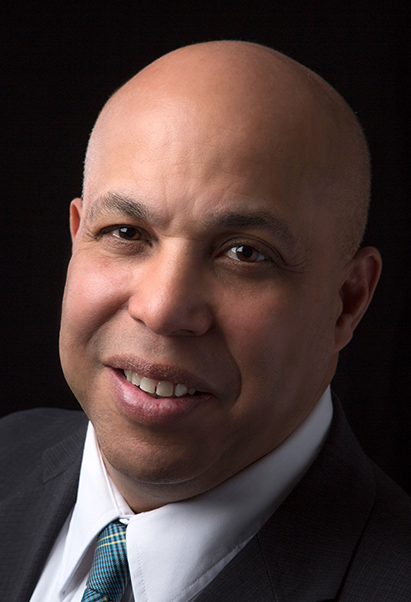Industry Insights
April 22, 2022
Duff: U.S. v. Washington No. 2 Post on the Oral Argument
- National
- - 0 shares
I have posted a recap of the Hanford oral argument on the SCOTUS blog:

Michael C. Duff
It might not be easy to get to the merits of United States v. Washington. A funny thing happened on the way to oral argument: The State of Washington modified the 2018 workers’ compensation law at the center of the case, raising the prospect that there is no longer a live dispute for the justices to resolve.
The state’s old law, HB 1723, was aimed at federal contract workers who got sick after helping clean up the Hanford nuclear site in southern Washington. It created a presumption that certain conditions suffered by those workers were “occupational diseases.” The new law, SB 5890, expanded the presumption beyond federal workers; the presumption now applies to “all personnel working at a radiological hazardous waste facility.” Because the merits of the case concern whether Washington can constitutionally discriminate against federal contractors by utilizing a causation standard making it easier for those employees to obtain workers’ compensation awards (with the federal government as de facto self-insurer of the awards), a problem of mootness arose. Discrimination — if that is what it was — ceased to exist as soon as the new law took effect on March 11, 2022.
Still, as discussed at length during Monday’s argument, the two statutes might not be coextensive in the benefits they offer to covered workers. As Justice Clarence Thomas observed, some statutory beneficiaries under the old law might prefer its protections. Some workers engaged in arguably less hazardous work may have been covered under that law but not under the new law. If some workers’ compensation claims remain live under the old law, then the case might not be moot after all. But Tera Heintz, arguing for Washington, assured the justices that the new law eliminates that possibility because it applies retroactively. The result, Heintz said, is that the 66 pending claims and 140 closed claims are now governed exclusively by the new law. To the extent the United States seeks declaratory and injunctive relief from the old law, no such relief could be available.
The rest of the post is here.
Michael C. Duff is a professor of law at the University of Wyoming College of Law. This entry is republished from the Workers' Compensation Law Professors blog, with permission.
Advertisements
Columns
- Langham: Uniformity in Regulations 04/25/24
- Kamin: Expanding the Good-Faith Personnel Action Defense 04/24/24
- Moore: Reciprocity Adds Authority 04/23/24
- Montgomery: Sedgwick Tries PPO Discount for Med-Legal (Again) 04/19/24
- Kamin: More Policy Exclusions Would Reduce Losses 04/18/24
- Phillips: It's All Settled 04/17/24
- Snyder: Public Benefit Rules Have Changed, but It Might Not Make a Difference 04/12/24
- Headrick: Clearing Up a Common Misconception 04/11/24
- Snyder: Litigation Guidelines Should Define Four Settlement Triggers 04/10/24
- Kirsch: Depositions of Comp Carrier Employees After Intervening in Third-Party Actions 04/09/24
- Wilson and Bennett: Could AI Have Prevented the Opioid Crisis in Workers' Comp? 04/08/24
- Moore: Pandemic Effect Over in March 2027. Really? 04/05/24
- Geaney: A Brief History of Our State's Workers' Compensation Act 04/04/24
- Kamin and Larres: Significant Panel Decision Clarifies Recon Confusion 04/03/24
- Gelman: Exposed to 'Forever Chemicals' 04/02/24
- Montgomery: Cyberattack Delays Payment of San Francisco Bills 04/01/24
- Young: Indoor Heat Regs in Turmoil 03/29/24
- Langham: Shootings and Compensability 03/27/24
- Geaney: Third-Party Liens Not Always Due Right Away 03/26/24
- Larres: State Supreme Court Denies Review of Our Appellate Win 03/25/24
Now Trending
- Workers' Compensation News
-
Calif. DWC
Launches Portal for QME…
Posted on Apr 24, 2024Dr. Ron Perelman says: “The problem is that most QMEs are older docs. Many are semiretired.…”Kimberley J Pryor says: “I had planned to post a well constructed comment, but I stopped…”
-
Calif. Worker Gets
Benefits for Crash Despite Leaving
Job Site Without Employer's…
Posted on Apr 25, 2024
-
Calif. DWC Updates
Time-of-Hire…
Posted on Apr 23, 2024
-
Calif. Committee
Passes Bill to Expand 4850…
Posted on Apr 22, 2024
-
Calif.
Appropriations Committee Places TD
Bills on Suspense…
Posted on Apr 24, 2024
-
Calif. Committee
Passes Bill to Revise Poster…
Posted on Apr 19, 2024
-
Calif. Newsom Says
Indoor Heat Safety Rules Too
Expensive for…
Posted on Apr 25, 2024
-
Neb. Divided
Supreme Court Reinstates
Occupational Disease Claim for…
Posted on Apr 23, 2024
-
Ore. Worker Can
Request Examination if Carrier
Supports Claim Denial With IME…
Posted on Apr 22, 2024
-
Minn. Supreme
Court Upholds Award to Social
Worker for…
Posted on Apr 19, 2024
Jobs
Upcoming Events
May 5-8, 2024
Risk World
Amplify Your Impact There’s no limit to what you can achieve when you join the global risk managem …
May 13-15, 2024
NCCI's Annual Insights Symposi
Join us May 13–15, 2024, for NCCI's Annual Insights Symposium (AIS) 2024, the industry’s premier e …
May 13-14, 2024
CSIA Announces the 2024 Annual
The Board of Managers is excited to announce that the CSIA 2024 Annual Meeting and Educational Con …
Social Media Links
c/o Business Insurance Holdings, Inc.
Greenwich, CT 06836





No Comments
Log in to post a comment